In recent years, chatbots have emerged as a game-changing technology. Chatbot case studies from various industries demonstrate the transformative power of AI-driven conversational interfaces.
According to a report by Grand View Research, the global chatbot market is expected to reach $1.25 billion by 2025, growing at a CAGR of 24.3% from 2019 to 2025. This exponential growth is reflected in the increasing number of AI chatbot case studies examples across sectors.
E-commerce businesses, in particular, have been quick to adopt chatbots, with ecommerce chatbot case studies data showing significant improvements in customer satisfaction and sales.
A study by Juniper Research predicts that chatbots will be responsible for cost savings of over $8 billion per annum by 2022, up from $20 million in 2017. These statistics underscore the importance of examining chatbot case studies to understand best practices and potential pitfalls.
In this article, we'll explore a series of chatbot case studies, showcasing how AI-powered chatbots are revolutionizing customer engagement across various industries.
From retail to healthcare, these real-world chatbot case studies offer valuable insights into the practical applications and benefits of this rapidly evolving technology.
Understanding the Impact of Chatbots

In this section, we will explore the key benefits of implementing chatbots and their chatbot case studies for business growth.
Additionally, we'll discuss the challenges involved in chatbot development, such as Natural Language Processing (NLP) limitations, maintaining human touch, and ensuring data privacy and security.
Key Benefits of Chatbot Implementation
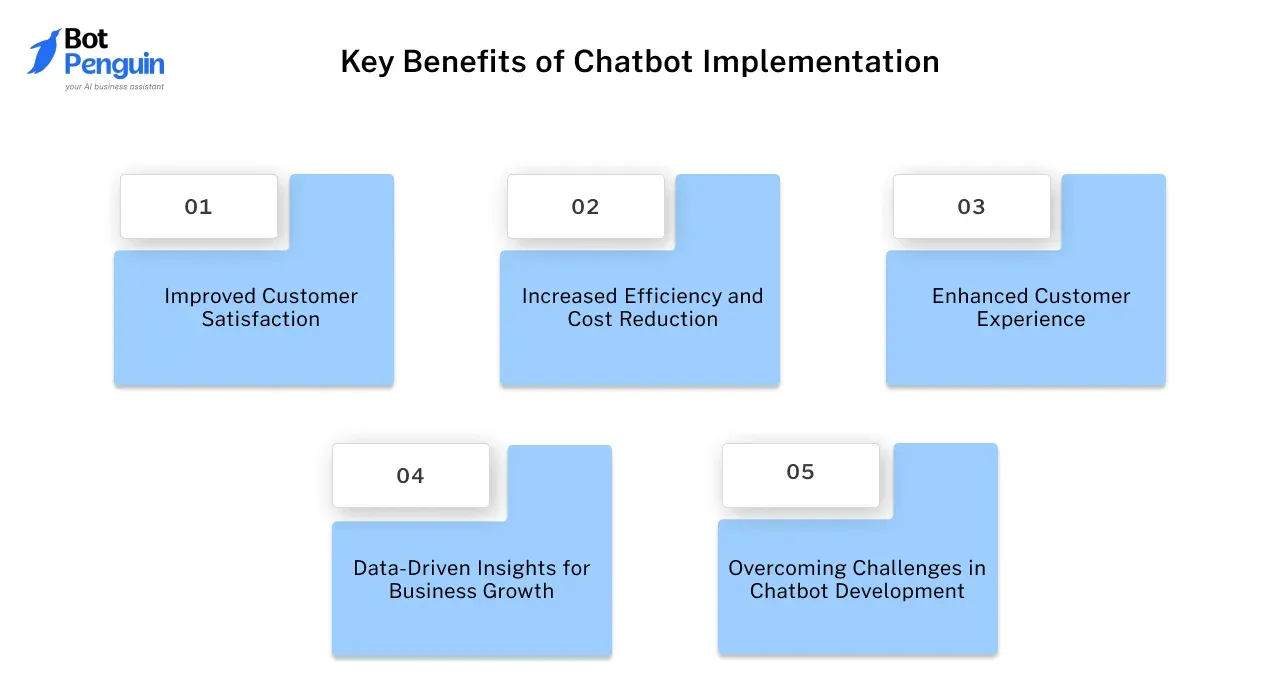
Here are the key advantages of chatbot implementation:
Improved Customer Satisfaction
Chatbots excel in delivering quick and accurate responses, leading to improved customer satisfaction. With their ability to handle multiple inquiries simultaneously, chatbots eliminate long waiting times, ensuring customers receive timely assistance.
By providing personalized recommendations and resolving issues promptly, chatbots create a seamless customer experience that leaves customers feeling valued and supported.
Increased Efficiency and Cost Reduction
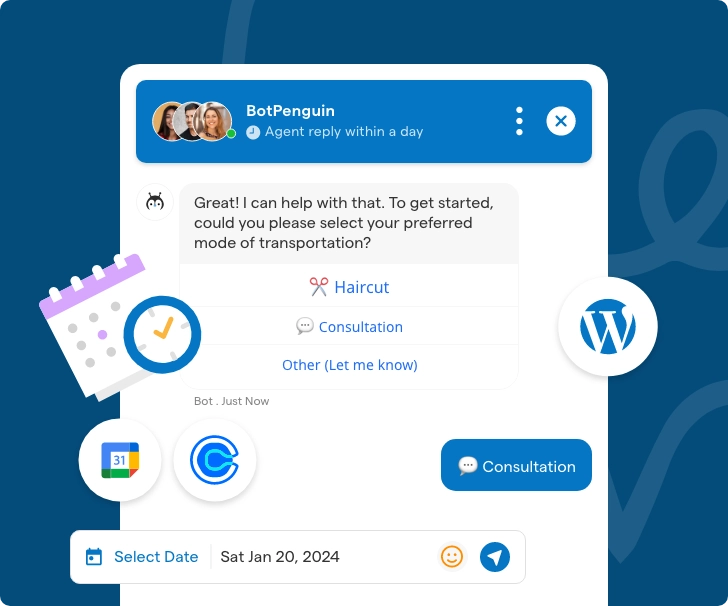
Implementing chatbots allows businesses to automate routine tasks and inquiries, resulting in increased operational efficiency.
Chatbots like BotPenguin, can handle repetitive queries, freeing up human resources to focus on more complex and strategic tasks.
Moreover, chatbots can handle a large volume of conversations simultaneously, reducing the need for additional customer support agents. This not only increases efficiency but also reduces costs for businesses.
Enhanced Customer Experience
Chatbots are equipped with advanced AI capabilities that enable them to understand customer preferences and provide personalized experiences.
By analyzing customer data and past interactions, chatbots can tailor recommendations and suggestions to meet individual needs.
Whether it's suggesting products based on previous purchases or offering customized solutions, chatbots enhance the overall customer experience, building loyalty and trust with each interaction.
Data-Driven Insights for Business Growth
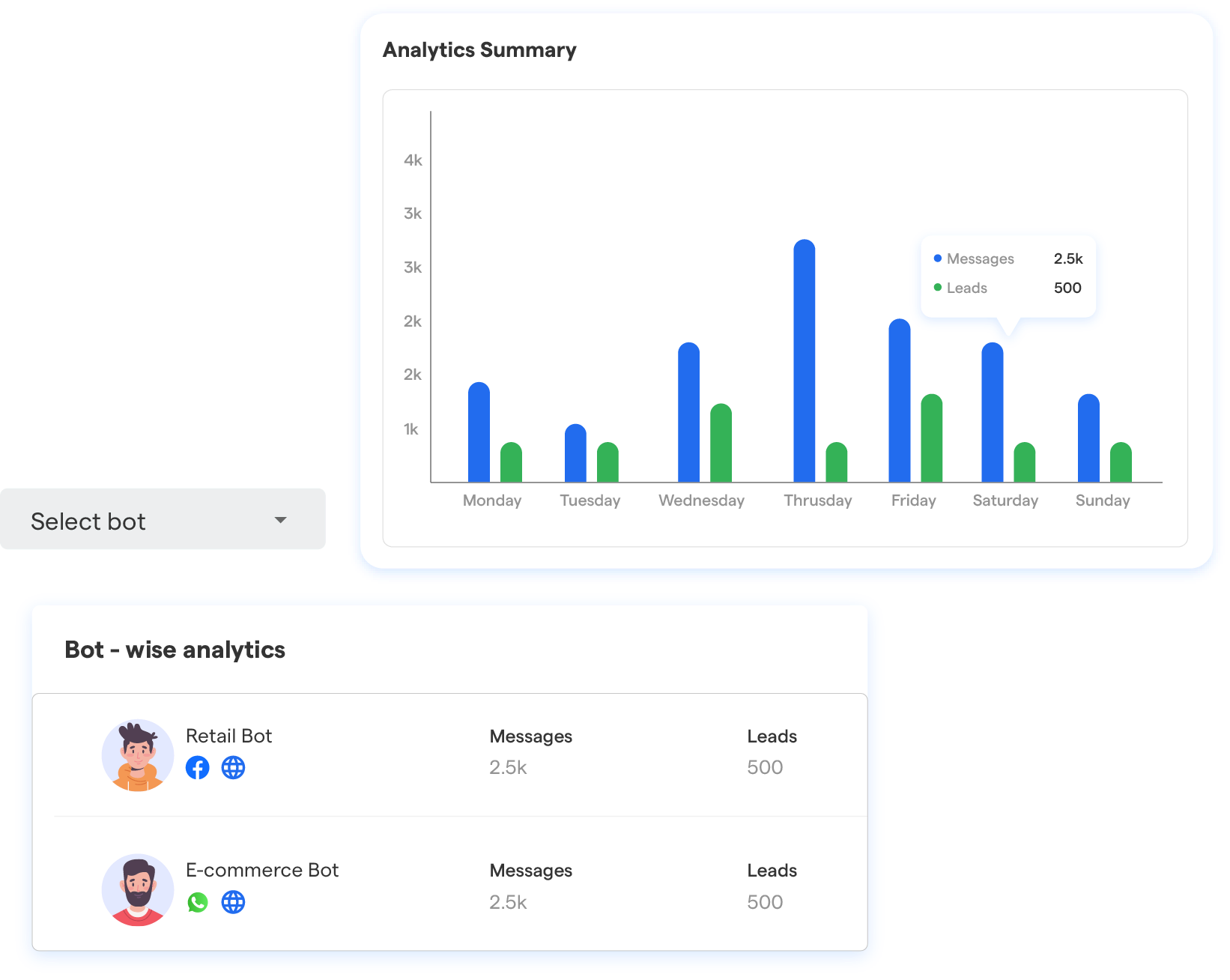
Chatbots generate a wealth of data from customer interactions. This data can be harnessed to gain valuable insights into customer behavior, preferences, and pain points.
By analyzing these insights, businesses can make data-driven decisions to improve products, services, and overall customer engagement strategies.
Chatbots serve as a powerful tool for gathering real-time customer feedback, helping businesses stay agile and adapt to changing customer demands.
Overcoming Challenges in Chatbot Development
While NLP has played a crucial role in advancing chatbot capabilities, it still faces challenges in understanding complex queries, idioms, and nuances of human language.
Chatbot developers must continuously work on improving NLP algorithms to ensure accurate interpretation and response generation. Striking a balance between automation and human intervention is vital to deliver a satisfactory chatbot experience.
Despite the advantages that chatbots offer, maintaining a human touch in customer interactions is essential. Businesses need to strike a balance between automation and human assistance to ensure that customers feel heard and understood.
Designing chatbot interactions in a friendly, conversational manner and offering an easy transition to human agents when necessary can help maintain that personalized touch.
Chatbots handle sensitive customer information, making data privacy and security critical considerations in their development. Businesses must implement robust data protection measures to safeguard customer data from unauthorized access or breaches.
Ensuring compliance with data privacy regulations and transparently communicating data handling practices to customers builds trust and confidence in chatbot interactions.
Chatbot Case Studies: Across Industries
Chatbots have emerged as powerful tools across various industries.
Let's delve into real-world Chatbot case studies of how chatbots are transforming customer experiences in e-commerce, banking, healthcare, and customer support.
Chatbots in E-commerce
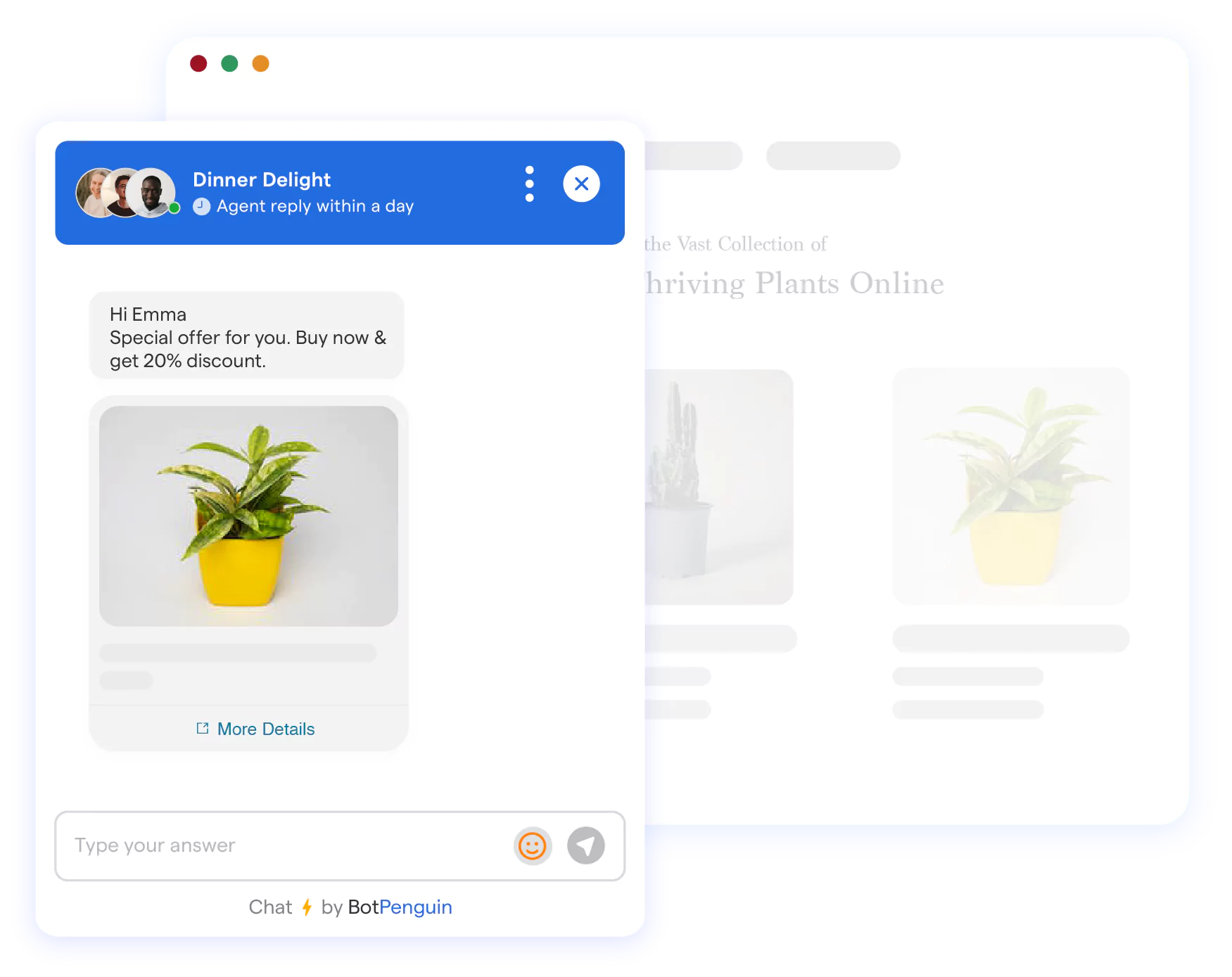
Leading chatbot case studies from the e-commerce sector demonstrate how AI-powered retail automation is revolutionizing online shopping experiences.
Recent chatbot case studies have documented remarkable success stories, showcasing how virtual shopping assistants transform customer engagement and boost sales metrics.
H&M's AI-powered chatbot assists customers with product recommendations, sizing, and order tracking
H&M, a prominent fashion retailer, implemented an AI-powered chatbot to enhance customer interactions on their website and social media platforms.
The chatbot, equipped with natural language understanding capabilities, assists customers with product recommendations based on their preferences, helps with sizing queries, and provides real-time order tracking updates.
By leveraging AI technology, H&M has successfully personalized the shopping experience for customers, resulting in increased engagement and sales.
Amazon's Alexa enables voice-based shopping and customer support
Amazon's virtual assistant, Alexa, has revolutionized e-commerce through voice-based shopping and customer support. Customers can use Alexa-enabled devices to browse products, place orders, and track shipments effortlessly.
By integrating AI and voice recognition technology, Amazon has simplified the shopping experience, making it convenient and seamless for customers. Alexa's intuitive design and user-friendly interface have set new standards for customer engagement in the e-commerce industry.
Chatbots in Banking and Finance
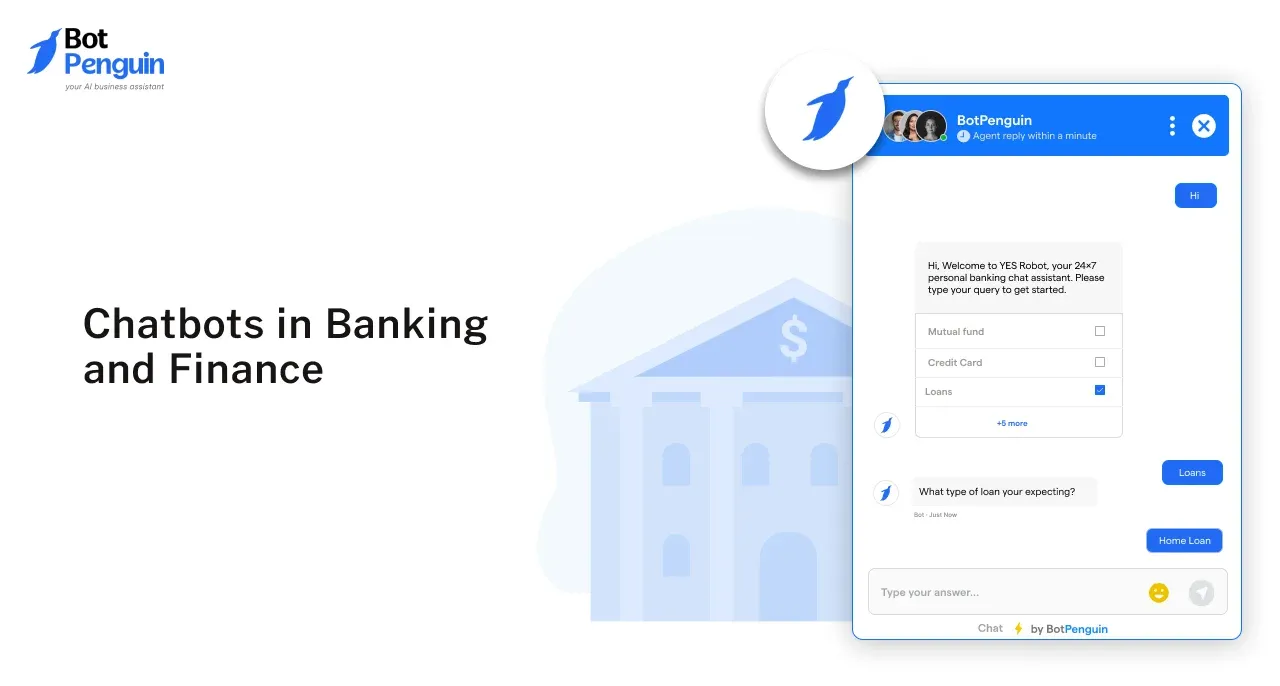
Groundbreaking chatbot case studies in the financial sector reveal how banking institutions are achieving unprecedented efficiency through automated customer service.
These documented chatbot case studies showcase successful implementations that have redefined how banks interact with customers while maintaining security and compliance.
Capital One's Eno chatbot provides account balance checks, transfers, and fraud alerts
Capital One's Eno chatbot offers customers a convenient way to access banking services and manage their accounts.
Eno can perform tasks such as checking account balances, transferring funds between accounts, and sending fraud alerts to help customers monitor their finances effectively.
By leveraging AI technology, Capital One has enhanced the customer experience by providing a secure and personalized banking service through Eno.
Bank of America's Erica chatbot offers financial advice, bill payments, and investment information
Bank of America's Erica chatbot serves as a virtual financial assistant, offering customers personalized advice on budgeting, bill payments, and investment opportunities.
Customers can interact with Erica through the bank's mobile app to access financial guidance and information tailored to their specific needs.
By incorporating AI capabilities into its services, Bank of America has enabled customers to make informed financial decisions efficiently, fostering a stronger relationship between the bank and its customers.
Chatbots in Healthcare
Healthcare chatbot case studies highlight the critical role of AI in modern patient care and administrative efficiency.
Compelling chatbot case studies from leading healthcare providers demonstrate significant improvements in patient engagement and resource optimization through automated solutions.
Babylon Health's AI chatbot provides initial medical consultations and triage
Babylon Health has revolutionized healthcare delivery with its AI chatbot that offers users initial medical consultations and triage services.
Patients can receive symptom assessments, medical advice, and guidance on appropriate next steps through the chatbot, enhancing access to healthcare resources.
By leveraging AI technology, Babylon Health has enhanced patient care and streamlined the healthcare process, ensuring timely and accurate medical assistance for users.
Mayo Clinic's chatbot offers health information, appointment scheduling, and symptom checkers
The Mayo Clinic has introduced a chatbot to provide users with comprehensive health information, appointment scheduling services, and symptom checkers.
Patients can use the chatbot to access medical resources, book appointments with healthcare providers, and assess their symptoms remotely.
By integrating AI into its healthcare services, the Mayo Clinic has improved patient access to medical care, reduced wait times, and empowered individuals to take control of their health effectively.
Chatbots in Customer Support
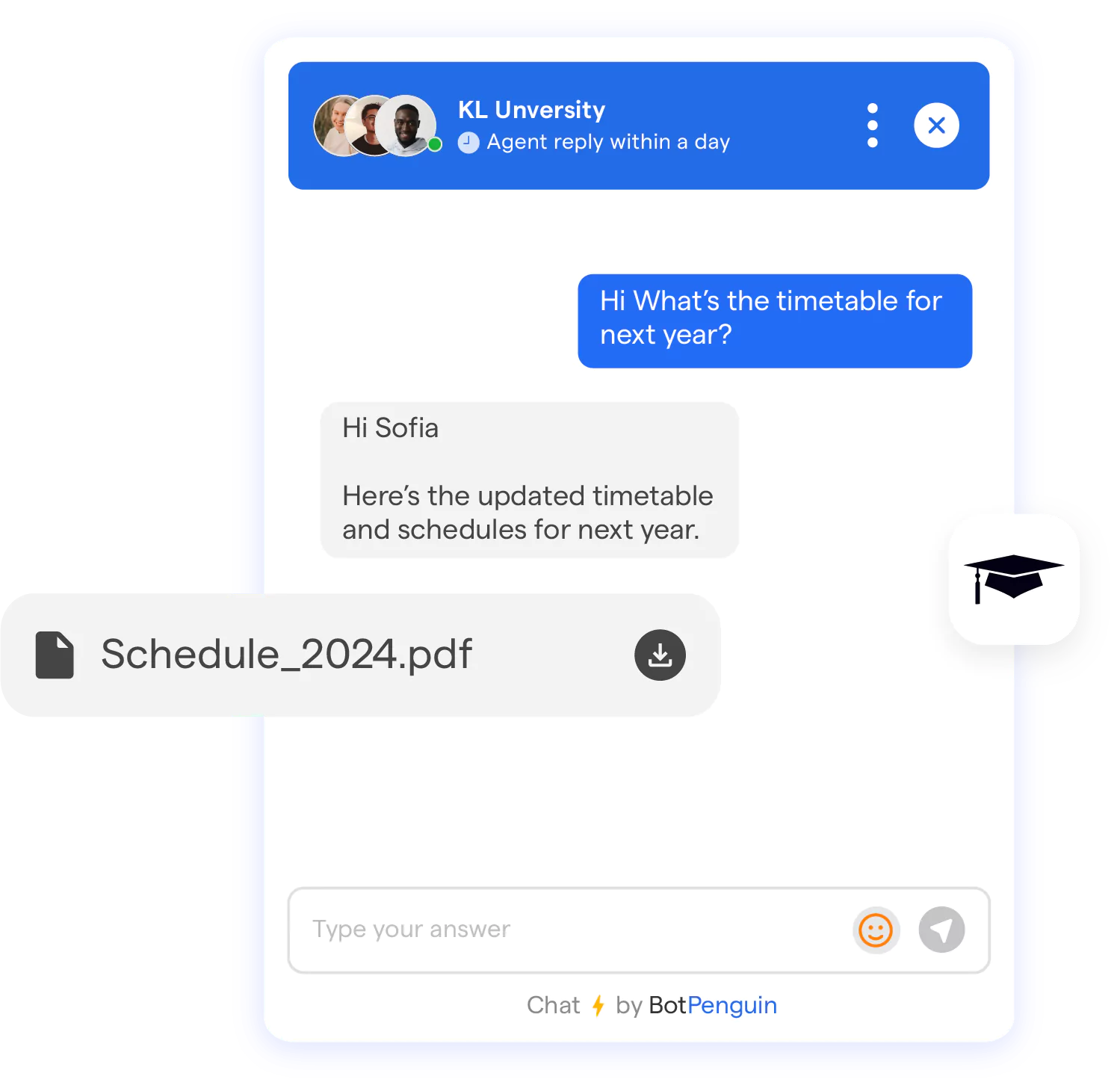
Transformative chatbot case studies in customer support reveal how businesses are achieving superior service delivery through AI automation.
These detailed chatbot case studies provide concrete evidence of reduced response times and improved customer satisfaction rates, making them valuable references for businesses considering similar implementations.
Spotify's chatbot resolving customer issues related to playlists, subscriptions, and audio quality
Spotify's chatbot serves as a valuable customer support tool, assisting users with playlist management, subscription inquiries, and audio quality concerns.
Customers can interact with the chatbot to troubleshoot issues, receive personalized recommendations, and seek assistance with their music preferences.
By offering seamless support services through the chatbot, Spotify has enhanced user satisfaction and loyalty, cementing its position as a leader in the music streaming industry.
Suggested Reading:
How Botpenguin's chatbot can help your business in improving Customer Engagement
Delta Airlines' chatbot provides flight information, check-in, and baggage updates
Delta Airlines has implemented a chatbot to streamline customer interactions and provide timely assistance with flight information, check-in processes, and baggage updates.
Travelers can engage with the chatbot to access real-time flight updates, complete check-in procedures, and receive notifications about their baggage status.
By integrating AI technology into its customer support services, Delta Airlines has improved operational efficiency, reduced waiting times, and enhanced the overall travel experience for passengers.
Conclusion
In conclusion, these chatbot case studies demonstrate the transformative potential of AI-powered conversational interfaces across various industries.
From ecommerce chatbot case studies showcasing increased sales and customer satisfaction to AI Chatbot case studies examples in healthcare and finance, the impact of this technology is undeniable.
These chatbot case studies examples highlight key benefits such as improved customer engagement, reduced response times, and significant cost savings.
They also underscore the importance of careful implementation and continuous optimization to achieve the best results.
As we've seen in numerous chatbot case studies, platforms like BotPenguin are enabling businesses of all sizes to harness the power of AI for customer engagement.
BotPenguin's versatile chatbot solutions have been featured in several successful case studies, demonstrating their effectiveness in diverse scenarios.
Moving forward, we can expect to see even more innovative applications of chatbots, as evidenced by emerging AI chatbot case studies trends. Businesses looking to stay competitive should closely examine these chatbot case studies and consider implementing their AI-powered chat solutions.
By learning from these real-world chatbot case studies and leveraging platforms like BotPenguin, companies can enhance their customer engagement strategies and position themselves at the forefront of the AI revolution in customer service.
Frequently Asked Questions (FAQs)
What are some real-world examples of AI chatbots enhancing customer engagement?
As per the case study chatbot have been successfully implemented by leading companies like Starbucks, Sephora, and Amtrak to improve customer engagement through personalized interactions, efficient support, and streamlined experiences.
How do AI chatbots contribute to enhancing customer satisfaction?
AI chatbots enhance customer satisfaction by providing quick, 24/7 assistance, personalized recommendations, resolving queries efficiently, and creating seamless customer experiences, leading to higher levels of customer engagement and loyalty.
What role do AI chatbots play in optimizing customer support processes?
AI chatbots streamline customer support processes by automating responses to common queries, providing instant resolutions, reducing response times, and freeing up human agents to focus on more complex issues, resulting in improved customer engagement.
Can AI chatbots personalize interactions to enhance customer engagement?
AI chatbots leverage data analytics and machine learning algorithms to personalize interactions, offer tailored recommendations, remember customer preferences, and engage in more meaningful conversations, leading to increased customer engagement and satisfaction.
How have AI chatbots helped businesses improve their customer engagement strategies?
AI chatbot case study shows that it has enabled businesses to offer 24/7 support, handle multiple queries simultaneously, provide consistent responses, collect valuable customer data, and deliver personalized experiences, ultimately boosting customer engagement and loyalty.



